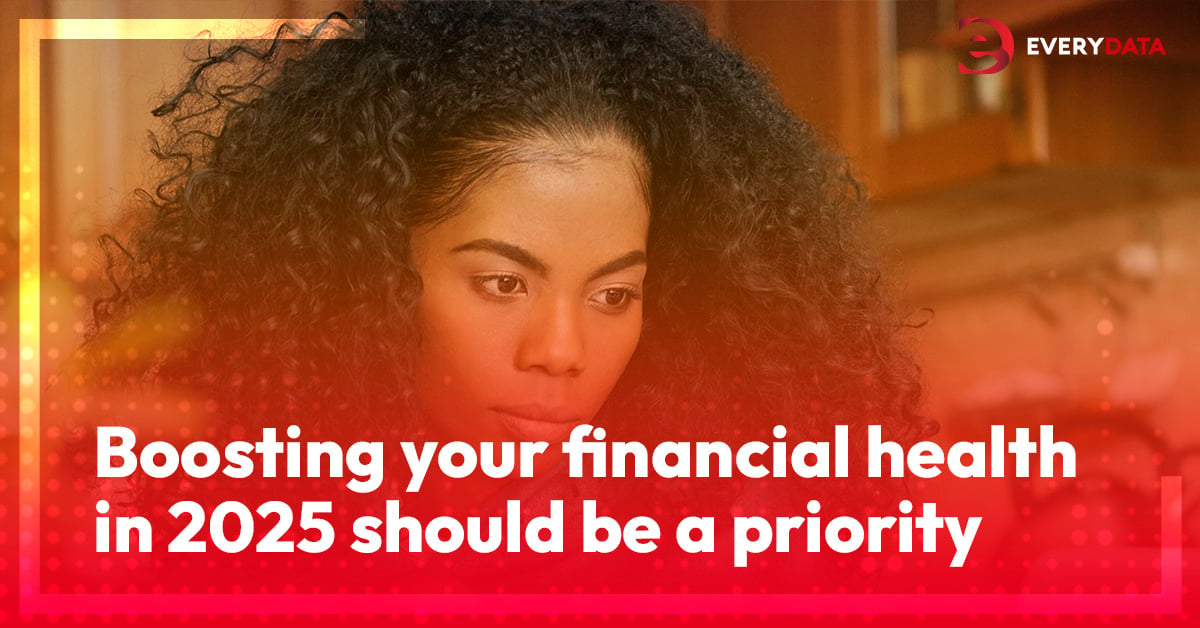
As the new year approaches, many of us set resolutions to improve our health, relationships, or career goals. But what about our financial well-being? If managing your credit hasn’t made your list of New Year’s resolutions yet, it’s time to change that. A strong credit score opens doors to better interest rates, more significant financial opportunities, and a less stressful relationship with money. Here are 10 actionable credit resolutions to help you build a healthier financial future in 2025:
- 1. Check Your Credit Report - Your credit report is the foundation of your financial health. Start the year by reviewing your report for errors or inaccuracies that could be dragging your score down. Look for incorrect balances, outdated accounts, or unauthorized activity.
In Jamaica, you’re entitled to one free credit report annually, and services like EveryData make accessing and understanding it simple. If you spot any discrepancies, dispute them right away to avoid long-term consequences.
- 2. Set SMART Credit Goals - Just like any resolution, your credit goals should be SMART: Specific, Measurable, Achievable, Relevant, and Time-bound.
For instance, instead of saying, “I want to improve my credit score,” aim for something concrete like, “I want to increase my score by 50 points in six months by paying down my credit card debt and paying all bills on time.” SMART goals give you a clear path to success and make it easier to track your progress.
- 3. Pay Bills on Time, Every Time - Your payment history is the most significant factor influencing your credit score, accounting for 35%. Even one missed payment can cause a significant dip.
Set reminders or automate payments to ensure you never miss a due date. Many banks and credit unions offer this service for free, and it’s a simple step that goes a long way in maintaining your credit health.
- 4. Tackle High-Interest Debt - High-interest debt, like credit card balances, can quickly snowball and become overwhelming. Prioritize paying down these debts first to save money and improve your credit utilization ratio. Consider using the avalanche method (paying off the highest-interest debt first) or the snowball method (paying off the smallest balances first for psychological motivation). Whichever approach you choose, the key is consistency.
-
-
- 5. Keep Your Credit Utilization Low - Credit utilization is the percentage of your available credit that you’re using. For example, if your credit limit is $10,000 and your balance is $3,000, your utilization is 30%. Experts recommend keeping this figure below 30%—and even lower if possible.
- 6. Limit New Credit Applications - Each time you apply for a new credit card or loan, the lender performs a hard inquiry on your credit, which can lower your score temporarily. In 2025, resolve to be strategic about new credit applications. Only apply for credit when it’s necessary, such as for a mortgage or a car loan.
- 7. Diversify Your Credit Mix - Your credit mix—composed of revolving credit (like credit cards) and installment credit (like loans)—makes up 10% of your credit score. If your credit history lacks diversity, consider adding a different type of account, such as a small personal loan or a secured credit card. Just be cautious about taking on debt you don’t need, and ensure you can manage the new payments responsibly.
- 8. Save for Emergencies - An emergency fund isn’t directly tied to your credit score, but it can protect you from relying on credit cards or loans in a crisis.Aim to save at least three to six months’ worth of living expenses in an accessible account. This financial cushion can help you avoid missed payments, high balances, or other credit-damaging situations when the unexpected happens.
- 9. Educate Yourself - Knowledge is power, especially when it comes to credit. Take the time to understand how credit scores are calculated, what factors affect them, and how to use credit wisely.
- 10. Stay Consistent - Improving your credit doesn’t happen overnight. It takes patience, commitment, and consistency.
Stick to your resolutions throughout the year, and celebrate small wins along the way. Whether it’s paying off a credit card or seeing your score inch upward, each step brings you closer to your financial goals.
Make 2025 Your Year of Financial Growth. These resolutions aren’t just about boosting your credit score—they’re about creating lasting habits that lead to financial stability and peace of mind.
At EveryData, we’re here to help you every step of the way. From providing detailed credit reports to offering expert advice, we’re committed to empowering you to achieve your financial goals.